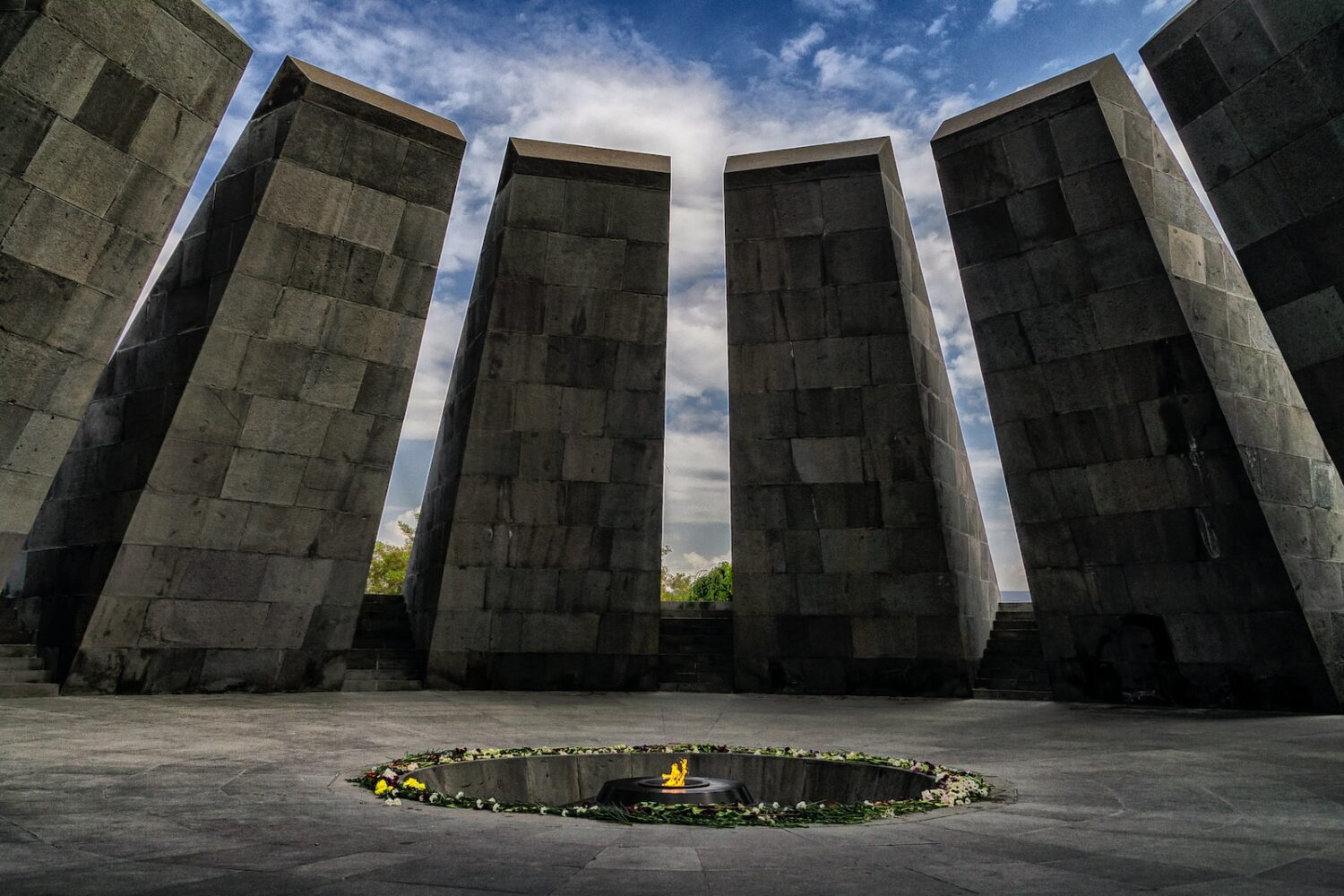A commitment to rescue the original meaning of the Universal Declaration of Human Rights (UDHR) emerged at the United Nations (UN) headquarters endorsed by more than 200 political and civic leaders from 40 countries participating in the 5th Transatlantic Summit. It is the New York Commitment celebrating the 75th anniversary of the UDHR.
Protecting life and religious background
In this, those present agreed to work to establish enabling environments for family formation and stability; to protect children, both before and after birth; and to respect the freedom of parents and legal guardians to provide for the religious and moral education of their children in accordance with their own convictions. They also pledged to promote respect for the diverse religious and ethical values, cultural backgrounds and philosophical convictions of the peoples of the world.
“We are here to bring to the present, in its original sense, that agreement of 1948, we must return to the human person and, from there, guarantee his or her fundamental rights. It is precisely here, at the United Nations, that our voice must be heard. We claim the basic principles that inspired the UDHR, they are timeless and transcendent principles,” said José Antonio Kast, president of the Political Network for Values, the organising institution of the event.
The New York Commitment 75 for Universal Human Rights gives visibility to a broad consensus that exists on all continents on the need to affirm the dignity of the person and fundamental values, especially life, family and freedoms.
“There are many of us who think this way and are very active in the social, political and cultural spheres, and we believe that there is always room for dialogue. It is our duty to remind those who forget or want to distort the original meaning of the UDHR,” he said.
Likewise, Santiago Santurio, Argentinean national deputy, declared: “It cannot be that today the most dangerous place in the world is the womb, where human life is most at risk. That is where we have to defend it with more strength, with more conviction. And that the State has to protect. And that families must promote it. In the same way that we have to protect families from the abuses of States and governments, in the same way that we have to protect States from the abuses of international organisations. There is a specific case here, the Beatriz del Salvador case, where we run the risk that some people from Costa Rica want to legislate abortion for all the Americas. This is very serious for the defence of human rights and the sovereignty of States. The Beatriz case must be an example that human rights must be defended in international bodies and that these bodies should not be abused in order to inflict the will of States and Parliaments.
Ito Bisonó, Minister of Industry and Commerce of the Dominican Republic, pointed out that it has never been more opportune to reaffirm the principles that gave rise to the UDHR in the face of the threats that people’s lives, liberty and dignity, in particular, are suffering today.
Samuel George, member of the Ghanaian Parliament, stressed that the UN Magna Carta enshrines the right to life, the protection that should be given to the family based on the marriage of a man and a woman, the protection of motherhood and childhood, the preferential right of parents to choose the education of their children, freedom of thought, conscience, religion, opinion and expression, which is why it is incomprehensible that international organisations should violate them.
Margarita de la Pisa, a member of the European Parliament, pointed out that these rights, far from being regressive, are the basis of true human development. “Defending life, for example, means a political commitment to prosperity,” she said.
In the same vein, Hafid El-Hachimi, an official of the Independent Permanent Commission for Human Rights of the Organisation of Islamic Cooperation, said that families are the fundamental unit for the sustainable, cultural and economic development of society, so seeking redefinitions of the family means compromising the future.
Neydy Casillas, an expert in multilateral organisations and vice-president of the Global Center for Human Rights (GCHR) referred to the case of Beatriz, the young Salvadoran woman whose daughter, Leilani, died hours after birth due to anencephaly, and whose case was taken to the Inter-American Court of Human Rights by abortion groups: “Upon seeing this tragic case, abortionist groups who claim to protect women, illegally obtained Beatriz’s medical file, her address and went to her home, harassed her, filled her with fear regardless of her illness (she suffered from lupus) and convinced her that she would die if she did not have an abortion.”
She then addressed the legislators of several countries, warning that their “authority is being damaged, as they have the legitimacy of the people, who gave them a voice to speak on their behalf, so democracy is being ended by silencing them”, she said.
The Paraguayan deputy, Raúl Latorre, also denounced that they are seeking to change the consensus and concept that the Universal Declaration of Human Rights originally represented: “Organisms of international law are openly attacking the right of those who cannot defend themselves, of those who cannot speak”, in reference to the unborn child.
What is the New York Commitment?
In the New York Commitment, the participants of the meeting pledged to form a global alliance for the human rights and fundamental freedoms enshrined and universally recognised in the UDHR.
They will work to establish enabling environments for family formation and stability; to protect children, both before and after birth; and to ensure that the freedom of parents and legal guardians to provide for the religious and moral education of their children in accordance with their own convictions is respected.
They also pledged to promote respect for the diverse religious and ethical values, cultural backgrounds and philosophical convictions of the world’s peoples, as well as for the sovereignty of states in matters within their domestic jurisdiction.
A different kind of summit within the UN
The 5th Transatlantic Summit, convened under the theme “Affirming Universal Human Rights – Bridging Cultures for Life, Family and Freedoms”, took place on 16-17 November in Room 4 of UN Headquarters, in the framework of the 75th anniversary of the UDHR. The event was organised by Political Network for Values (PNfV) and its partner organisations.
Participants included Erwin Ronquillo, Minister of Child Protection of Ecuador; Raúl Latorre, President of the Chamber of Deputies of Paraguay; Kinga Gál and Margarita de la Pisa, Members of the European Parliament for Hungary and Spain, respectively; Lucy Akello, Member of Parliament of Uganda; Päivi Räsänen, Member of Parliament of Finland; Corina Cano, Vice-President of the National Assembly of Panama; Germán Blanco, Senator of Colombia; Nikolás Ferreira of Brazil; Santiago Santurio, Member of Parliament of Argentina; and Rafael López Aliaga, Mayor of Lima (by video).
Also Lila Rose, President of Live Action; Valerie Huber, promoter of the Geneva Consensus Statement and President of the Institute for Women’s Health; Sharon Slater, President of Family Watch International; Dawn Hawkins, Executive Director of the International Centre on Sexual Exploitation; Neydy Casillas, Vice President for International Affairs at the Global Center for Human Rights; Ádám Kavecsánszki, President of the Foundation for a Civic Hungary; Austin Ruse, President of C-Fam; Brett Schaefer, Research Fellow at the Heritage Foundation; and Peter Torcsi, Director of Operations at the Center for Fundamental Rights; among others.
The event is officially supported by the Government of Guatemala and is sponsored by The Heritage Foundation, Center for Fundamental Rights, Foundation for a Civic Hungary, Global Center for Human Rights, International Centre on Sexual Exploitation, Family Watch International, C-Fam, ADF International, The Institute for Women’s Health, International Organization for the Family, and Talenting Group.
The Summit was chaired by José Antonio Kast, founder of the Republican Party of Chile, former presidential candidate in his country, and president of PNfV.
The PNfV is an international network of politicians actively committed to the promotion and defence of life, family and liberties. The Transatlantic Summits are a cornerstone of the Network. They bring together politicians and civic leaders from different countries to strengthen ties, share success stories and best practices, and build joint agendas. They are normally held every two years.
The first Summit was held at the United Nations in New York in 2014, followed by others at the European Parliament in Brussels in 2017, at the Colombian Capitol in Bogotá in 2019, and at the Hungarian Academy of Sciences in Budapest last year.





